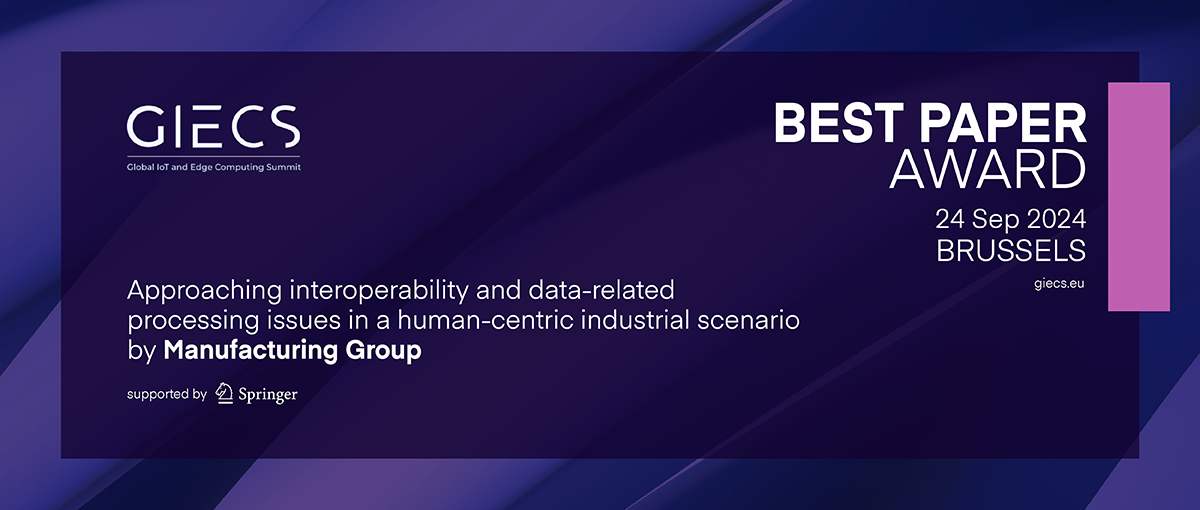award HumanTech Internet of Things premio
Global IoT and Edge Computing Summit: Manufacturing Group article wins ‘Best Paper Award’

During the GIECS 2024, held on 24 September in Brussels, the paper was awarded the prestigious ‘Best Paper Award’.
The Global IoT and Edge Computing Summit is a major international conference that aims to gather and present the most advanced research in the field of Internet of Things and computing continuum. The event brings together researchers, engineers, scientists and practitioners from around the world, providing an ideal platform to discuss the latest technological developments and industry trends.
The Summit provides an opportunity for leading experts in the field to share their studies through papers and presentations, allowing attendees of the most significant advances. A rigorous peer review process allows the organising committee to select the best contributions from researchers and practitioners working at the intersection of cloud, edge and IoT, promoting a deeper understanding of how continuous computing is shaping the future of the data exploitation.
This year, the paper written by Danish Abbas Syed, Walter Quadrini, Nima Rahmani Choubeh, Marta Pinzone and Sergio Gusmeroli from the Manufacturing Group of the POLIMI School of Management, was awarded as the best scientific paper. The paper, entitled “Approaching interoperability and data-related processing issues in a human-centric industrial scenario”, was recognised by the conference’s scientific committee for its relevance and originality.
The paper, first authored by our research fellow Danish Abbas Syed, is part of a new human-centric vision that will drive the future of industrial production. In line with HumanTech ,the project financed by the Italian Ministry of University and Research (MUR) for the 2023-2027 period as part of the initiative “Departments of Excellence”, the paper explores the use of private mobile networks and distributed software architectures to solve latency issues and the management of data generated by process operators.
In particular, its content paves the road for the realisation of a computer network distributed among the different levels of a software architecture to monitor the state of fatigue of an operator engaged in manual assembly tasks. In its prototype version, realised at the MADE Competence Centre, the operator’s state of fatigue is indeed constantly monitored and, as his fatigue increases, a series of auxiliary operations is taken over by two collaborative robots, releasing the human actor from the most demanding workloads and thus enabling optimal condition recovery, while also preventing pain and inflammations related to the musculoskeletal system.
The technical-scientific community of the Alliance for IoT and Edge Computing Innovation (AIOTI), the organiser of the event, also expressed interest in the solutions proposed in the article and shared the need, highlighted in the paper, for appropriate frameworks in line with the ethical principles of transparency at the heart of the current debate at European level.





